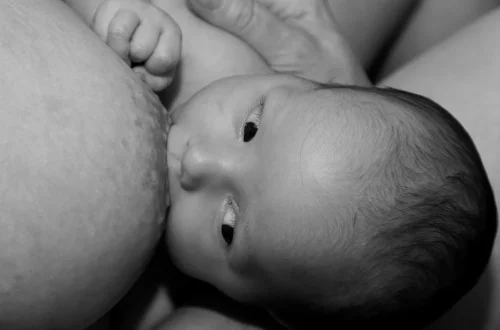
Warning Signs to Watch for During a Separation Process
The process of separation can be an emotionally charged experience, filled with uncertainty and anxiety. Whether it’s the end of a romantic relationship or a decision to part ways in a business partnership, the implications are profound and often life-altering. During this tumultuous time, individuals may find themselves grappling with a range of feelings, from sadness and anger to relief and hope. It is essential to recognize that separation is not just a physical act but also an emotional journey that can trigger various responses.
As people navigate through separation, they might encounter warning signs that indicate deeper issues at play. These signs can manifest in various ways, impacting both mental and emotional well-being. Understanding these warning signs is crucial, as they can provide valuable insights into one’s state of mind and the overall health of the relationship being left behind. Recognizing these signs early can help individuals make informed decisions, seek necessary support, and ultimately find a path toward healing and growth.
In the following sections, we will explore critical warning signs to watch for during the separation process, enabling individuals to better understand their feelings and the dynamics at play.
Emotional Instability and Mood Swings
One of the most significant warning signs during a separation is emotional instability. Individuals may experience rapid mood swings, fluctuating between feelings of sadness, anger, relief, and confusion. This emotional rollercoaster can be exacerbated by the stress of the situation and the uncertainty of the future.
It’s common for people to feel overwhelmed by their emotions during a separation. They may find themselves crying uncontrollably one moment, only to feel a surge of anger the next. These mood swings can be disorienting, leading to feelings of helplessness and despair. Recognizing that these emotional responses are a normal part of the separation process is crucial.
However, it’s essential to monitor the intensity and duration of these emotional fluctuations. If the mood swings become too severe or persist over an extended period, it may indicate underlying mental health issues that require professional support. Seeking therapy or counseling can provide individuals with coping strategies and a safe space to process their emotions.
Additionally, emotional instability can affect relationships with friends and family. Individuals may withdraw from loved ones, feeling too vulnerable to share their feelings or seeking solitude to cope with their pain. This isolation can lead to further emotional distress, creating a cycle that is hard to break. It is vital to reach out to trusted friends or family members who can offer support, understanding, and a listening ear.
In summary, emotional instability and mood swings are warning signs to be vigilant about during a separation. Recognizing and addressing these feelings early on can pave the way for healthier coping mechanisms and emotional resilience.
Changes in Sleep Patterns
Another critical warning sign to observe during a separation process is a significant change in sleep patterns. The emotional turmoil associated with separation can lead to insomnia, excessive sleeping, or disrupted sleep cycles. These changes can further exacerbate feelings of anxiety and depression, creating a vicious cycle that is hard to escape.
Individuals may find themselves lying awake at night, consumed by thoughts of the separation and its implications. The mind can become a whirlwind of worries, regrets, and “what if” scenarios, making it challenging to achieve restful sleep. On the other hand, some individuals might retreat into sleep as a form of escape, using it to avoid confronting their feelings and the reality of their situation.
Quality sleep is vital for emotional and physical well-being. When sleep is compromised, it can lead to fatigue, irritability, and difficulty concentrating, which can further complicate the separation process. It’s essential to establish a consistent sleep routine that promotes relaxation and restfulness. Simple practices like limiting screen time before bed, creating a calming bedtime environment, and incorporating relaxation techniques such as meditation or deep breathing can improve sleep quality.
If sleep disturbances persist, it may be beneficial to consult with a healthcare professional. Persistent insomnia or excessive sleeping can be symptoms of underlying mental health issues, such as anxiety or depression, which may require professional intervention.
In conclusion, changes in sleep patterns are a significant warning sign during a separation. By prioritizing good sleep hygiene and seeking help when needed, individuals can better manage their emotional responses and support their overall well-being.
Withdrawal from Social Activities
The process of separation often leads individuals to withdraw from social activities and connections. As feelings of sadness, anger, or confusion set in, the desire to engage with friends or participate in social events may diminish. This withdrawal can be a significant warning sign, indicating a deeper struggle with the emotional fallout from the separation.
Social support is crucial during times of distress. Friends and family can provide comfort, perspective, and encouragement, helping individuals navigate the complexities of their emotions. However, when someone begins to isolate themselves, it can hinder their ability to process their feelings and heal from the separation.
The reasons for withdrawal can vary. Some individuals might feel embarrassed or ashamed about their situation, fearing judgment from others. Others may simply lack the energy or motivation to engage in social activities. It is important to recognize that these feelings are normal, but it is equally important to push through the discomfort and seek connection.
Reaching out to friends, even if it feels challenging, can make a significant difference. Engaging in social activities, even in small doses, can provide a sense of normalcy and support. It can also serve as a reminder that life continues beyond the separation, fostering a sense of hope and resilience.
In summary, withdrawal from social activities is a warning sign that should not be ignored. Connecting with others can facilitate healing and help individuals regain a sense of agency in their lives.
Persistent Negative Thoughts
During a separation, it’s common for individuals to experience a flood of negative thoughts. These thoughts can manifest as self-doubt, guilt, or hopelessness, leading to a pervasive sense of negativity that can be hard to shake. Recognizing these persistent negative thoughts is vital, as they can significantly impact mental health and overall well-being.
Negative thinking patterns, such as catastrophizing or overgeneralizing, can cloud judgment and prevent individuals from seeing the situation clearly. For instance, one might convince themselves that they are unlovable or that they will never find happiness again. These thoughts can lead to feelings of despair and can hinder the healing process.
Challenging negative thoughts is a crucial step toward recovery. Individuals can practice cognitive restructuring techniques, which involve identifying negative thoughts and replacing them with more balanced, realistic perspectives. This practice can help break the cycle of negativity and promote a healthier mindset.
Additionally, journaling can be a helpful tool for processing emotions and thoughts. Writing down feelings can provide clarity and serve as an outlet for expressing what one is going through. It can also help individuals track their progress as they work through their separation.
In conclusion, persistent negative thoughts are a significant warning sign that can emerge during a separation. By recognizing these thoughts and actively challenging them, individuals can foster a more positive outlook and navigate their emotions more effectively.
In times of separation, it is crucial to be aware of the warning signs and seek support when needed. While this article provides insights into emotional responses and behaviors, it is not a substitute for professional medical advice. If you are experiencing significant emotional distress or mental health challenges, please consult a qualified healthcare provider for guidance.




